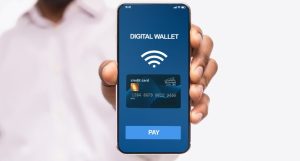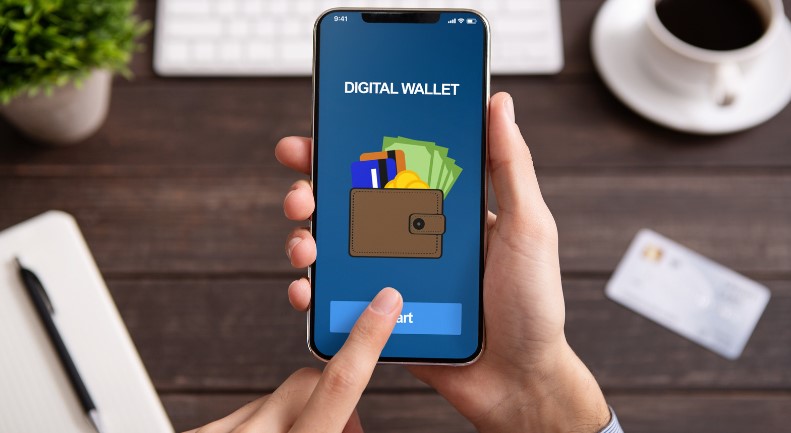In today’s fast-paced world, the need for quick and efficient cross-border money transfers is more important than ever. Digital wallets have emerged as game-changers, bridging gaps in traditional banking systems and revolutionizing how people send and receive money internationally. With user-friendly platforms, secure technologies, and competitive costs, digital wallets are setting new standards in the financial industry.
The Rise of Digital Wallets

Digital wallets have seen an incredible surge in popularity over the past decade. Initially designed for local payments, they have now expanded into the realm of cross-border transactions. Unlike traditional methods that involve bank queues and paperwork, digital wallets offer seamless, instant transfers at the click of a button.
What sets them apart is their flexibility. A digital wallet can hold multiple currencies, integrate with bank accounts, and even allow for direct card to card money transfer online, making them ideal for users who frequently deal with international payments.
How Digital Wallets Simplify Cross-Border Transfers?
Traditional cross-border money transfers can be slow, costly, and complicated, often involving multiple intermediaries. Digital wallets eliminate these bottlenecks by leveraging cutting-edge technology and direct payment networks.
- Instant Processing: Transfers are completed in real time, ensuring the recipient gets the money immediately.
- Lower Costs: With fewer intermediaries, digital wallets significantly reduce transaction fees compared to traditional bank transfers.
- User-Friendly Platforms: Most digital wallets are designed for simplicity, offering intuitive interfaces that make transferring money a hassle-free experience.
- Wide Accessibility: They work across borders, connecting users from different countries and enabling transactions in multiple currencies.
For example, services that offer card to card money transfer online through digital wallets provide a seamless way to move funds globally without hidden fees or delays.
Key Features Transforming the Industry
1. Multi-Currency Support
Digital wallets allow users to hold and convert currencies within the app. This feature is especially useful for cross-border transfers, as it eliminates the need for third-party currency exchanges.
2. Enhanced Security
With advanced encryption and multi-factor authentication, digital wallets ensure the safety of users’ financial information. Biometric verification, such as fingerprint or facial recognition, adds an extra layer of security to transactions.
3. Integration with Banking Systems
Digital wallets seamlessly integrate with local and international banking systems, allowing users to link their bank accounts or credit cards. This enables direct transfers to and from their wallets, ensuring a smooth financial flow.
Benefits for Cross-Border Transactions

Digital wallets are particularly advantageous for individuals and businesses dealing with cross-border payments. Here’s why:
- Speed: International transfers that once took days are now completed in minutes.
- Cost-Effectiveness: Competitive exchange rates and low transfer fees save users significant money.
- Convenience: Users can manage their transactions anytime, anywhere, from their smartphones.
Whether you’re a freelancer receiving payments from overseas clients or someone sending money to family abroad, digital wallets offer unmatched efficiency.
Popular Digital Wallet Platforms for Cross-Border Transfers
Several digital wallet platforms have become leaders in cross-border payments:
- PayPal: Known for its global reach and user-friendly interface.
- Wise: Specializes in low-cost international transfers with competitive exchange rates.
- Revolut: Offers multi-currency accounts and instant transfers between users.
- Google Pay and Apple Pay: Increasingly integrating cross-border payment capabilities.
Each of these platforms provides unique features tailored to specific user needs, making it easier to choose the right one for your situation.
Challenges and the Future of Digital Wallets

While digital wallets are transforming the financial landscape, there are still challenges to overcome. Regulatory differences between countries, limited access to digital infrastructure in remote areas, and concerns about data privacy remain hurdles.
However, the future looks bright. With continuous advancements in technology, digital wallets are expected to become even more accessible, secure, and efficient. Innovations like blockchain integration and AI-driven fraud prevention are already paving the way for a more robust system.
Conclusion
Digital wallets have undoubtedly revolutionized cross-border money transfers, making them faster, cheaper, and more convenient. By addressing the pain points of traditional methods, they have opened up new possibilities for individuals and businesses alike.
As we move into an increasingly globalized economy, the role of digital wallets will only grow. Whether you’re using them for a small transaction or a large-scale card to card money transfer online, the benefits are clear: instant processing, lower costs, and unparalleled convenience.
The future of cross-border money transfers is here and digital wallets are leading the charge.




